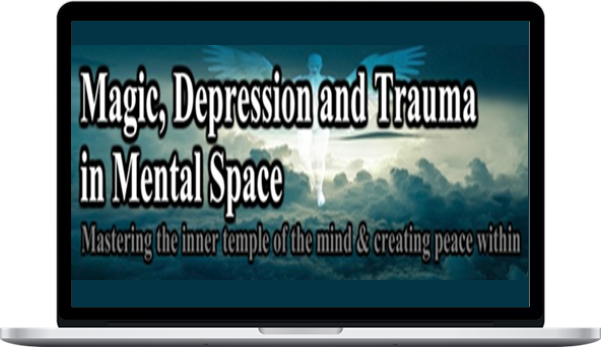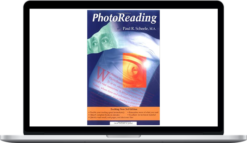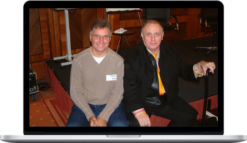Andrew Austin and Lucas Derks – Magick, Depression & Trauma in Mental Space
$65.61 $24.00
Total Sold: 2
»Instant Delivery
Description
Andrew Austin and Lucas Derks – Magick, Depression & Trauma in Mental Space
Description Of Magick, Depression & Trauma in Mental Space
This is a unique body of work to enable effective exploration and change in our internal world of thought, experience and imagination.
“This will be an invaluable course for those desiring to gain a level of self mastery as never conceived of previously. Through the powerful methods revealed, attendees will gain access to levels of control over negative thoughts, behavior patterns, and responses and rework them to their will.
Being certified Hypnotherapist and working within the psychotherapy field for over twenty years, I can attest to the successful methods and strategies utilized in this workshop. I have also been ceremonial magician for as long as my hypnotherapy career and I understand well how potent the two fields are in conjoined application.
Anyone wishing to undergo a sincere and positive transformation will need to access the deepest levels of their psyche in order to access the extent of their potential.
Hypnosis, NLP, and arcane correspondences are technologies that can be harnessed for powerful transformation to occur in the quickest and more importantly, the most effective ways possible. Learning to utilize these methods where psychotherapy and esoteric endeavor blend, will give the aspiring seeker a roadmap to limitless possibilities of mastery
“What I have particularly enjoyed and found useful is the way in which the program exposes psychological processes underlying ceremonial magic. Orientating metaphors in mental space adds a whole new dimension to my understanding of the ritual process and possible applications elsewhere. As a standalone approach to working with one’s own issues of depression, trauma etc, I think this interpretation of ceremonial magic is rich and admirable, but it opens up so many other possibilities. A very creative synthesis.” A.S. Yorks.
What you’ll learn in Magick, Depression & Trauma in Mental Space
Table of Video Contents
- Andy’s Introduction
An introduction into the rationale of the process. - Defining the Space: The Magic Circle
Securing a resourceful state to do the work. - Mental Space Psychology
An introduction to mental space psychology. - Defining The Triangle of Art
Ensuring that our demonic thought forms stay in place. - Personification in Space
Turning thought forms into living entities. - Clearing The Space
Maintaining a good state in which to go about this work. - The Magic of the Self Image
How we see ourselves. - Introduction to Banishing Forms
Making the interfering thought forms go away. - The Christian Trauma
A bit like the original sin, but different. - The Banishing Ritual of The Pentagram
A demonstration of the LBRP in a temple setting. - Invocation
Bringing in the positive resources and magic helpers. - Barry
Meet Barry. Barry is useful. Get to know Barry. - Manufacturing Demons
How we accidently create demonic thought forms simply using our language. - Depression in Mental Space
A client demonstration of working with depression in mental space. - Beliefs in Mental Space
How problematic beliefs maintain in mental space. - Religion as Therapy, Therapy as Religion
Therapy is our religion, Prozac is our sacrament. - Scrying
Seeing into the void. - Commanding Demons
Getting our thought forms to obey us and to work for us. - Necromancy
A quick word about the [un]dead. - Spiritual Panorama
Spirituality in Mental Space. - Words of Power
Using language to gain control - Etiquette for Talking with Demons
Being nice to your thought forms, because after all, they are…you. - Summary
A good round-up of the process.
About Andrew Austin

Andrew Austin is a neurolinguist and clinical hypnotherapist, and a registered nurse with experience in neurology. He has been teaching therapeutic methodologies since 1996 and has acquired a sizeable reputation with his developments of Metaphors of Movement and Integral Eye Movement Therapy. He also specializes in the treatment of Phantom Limb Pain and Post Traumatic Stress Disorder.
More courses from the same author: Andrew Austin and Lucas Derks
Delivery Policy
When will I receive my course?
You will receive a link to download your course immediately or within 1 to 21 days. It depends on the product you buy, so please read the short description of the product carefully before making a purchase.
How is my course delivered?
We share courses through Google Drive, so once your order is complete, you'll receive an invitation to view the course in your email.
To avoid any delay in delivery, please provide a Google mail and enter your email address correctly in the Checkout Page.
In case you submit a wrong email address, please contact us to resend the course to the correct email.
How do I check status of my order?
Please log in to HealingCourse account then go to Order Page. You will find all your orders includes number, date, status and total price.
If the status is Processing: Your course is being uploaded. Please be patient and wait for us to complete your order. If your order has multiple courses and one of them has not been updated with the download link, the status of the order is also Processing.
If the status is Completed: Your course is ready for immediate download. Click "VIEW" to view details and download the course.
Where can I find my course?
Once your order is complete, a link to download the course will automatically be sent to your email.
You can also get the download link by logging into your HealingCourse account then going to Downloads Page.










